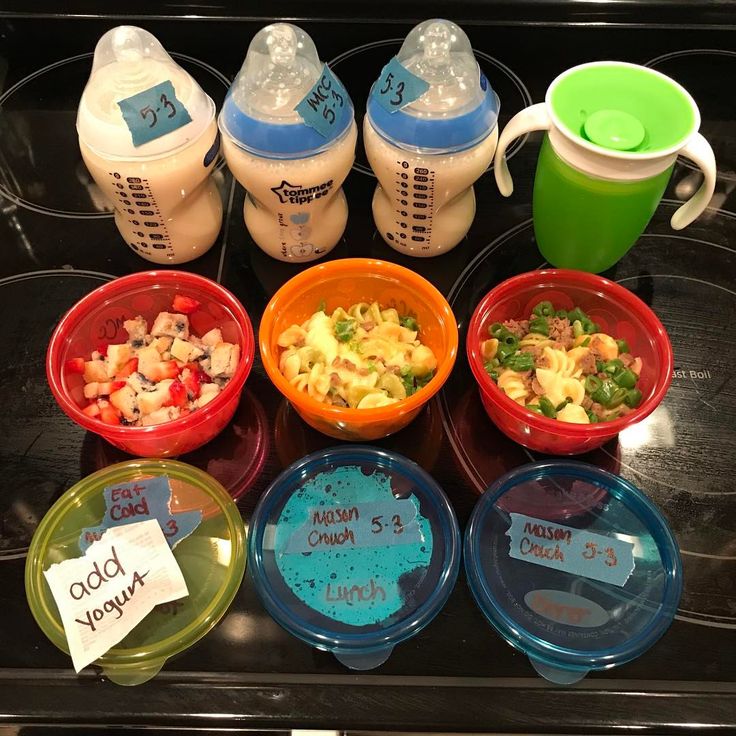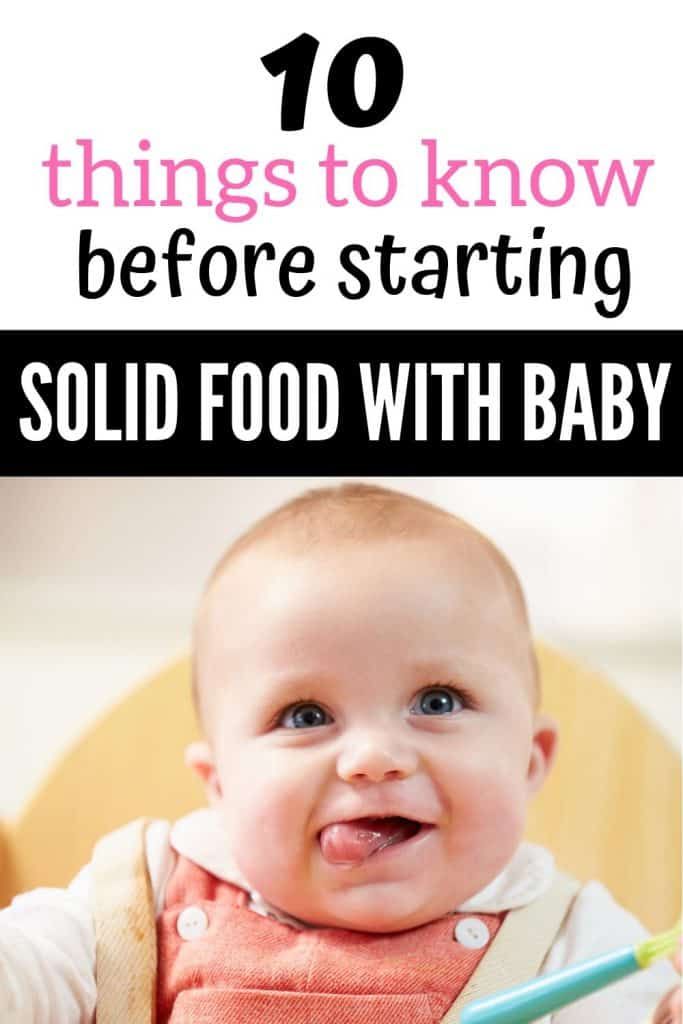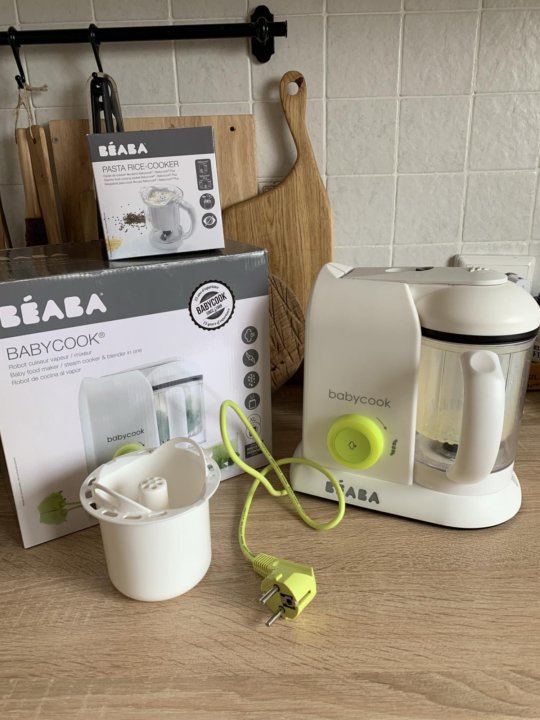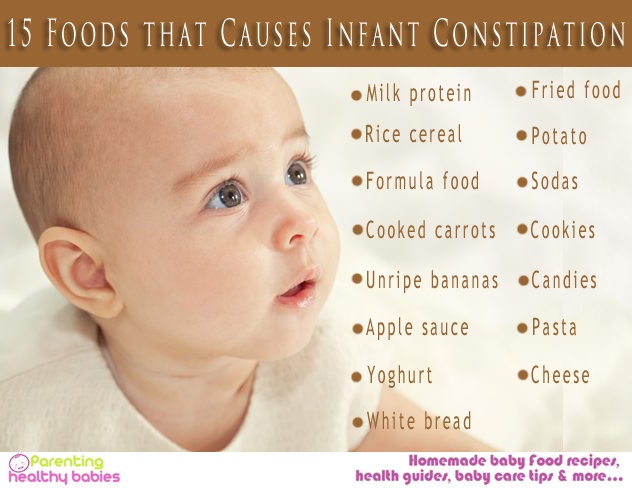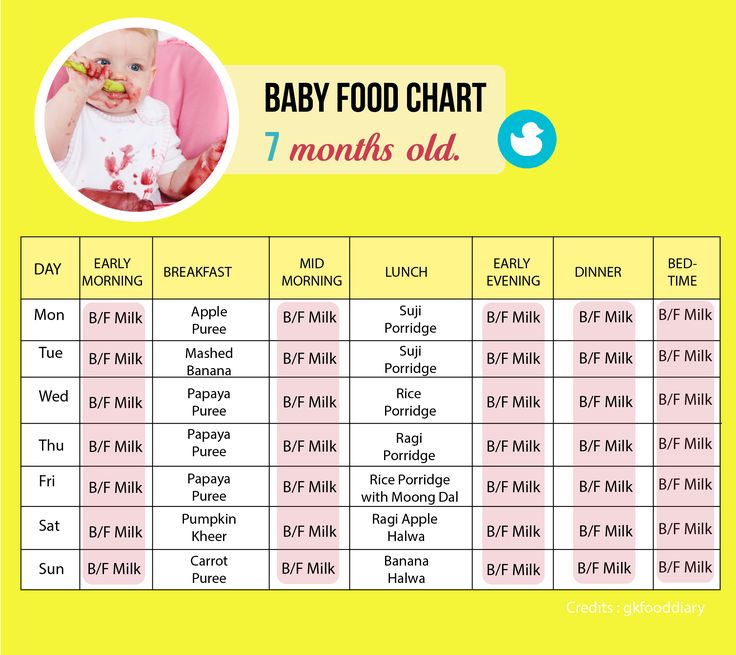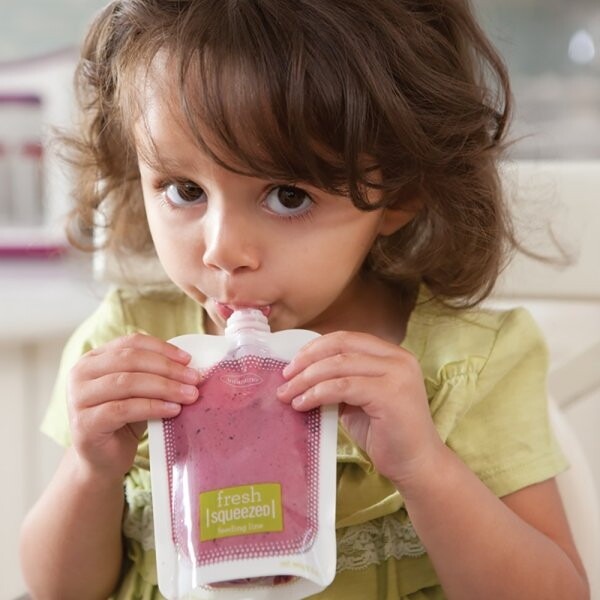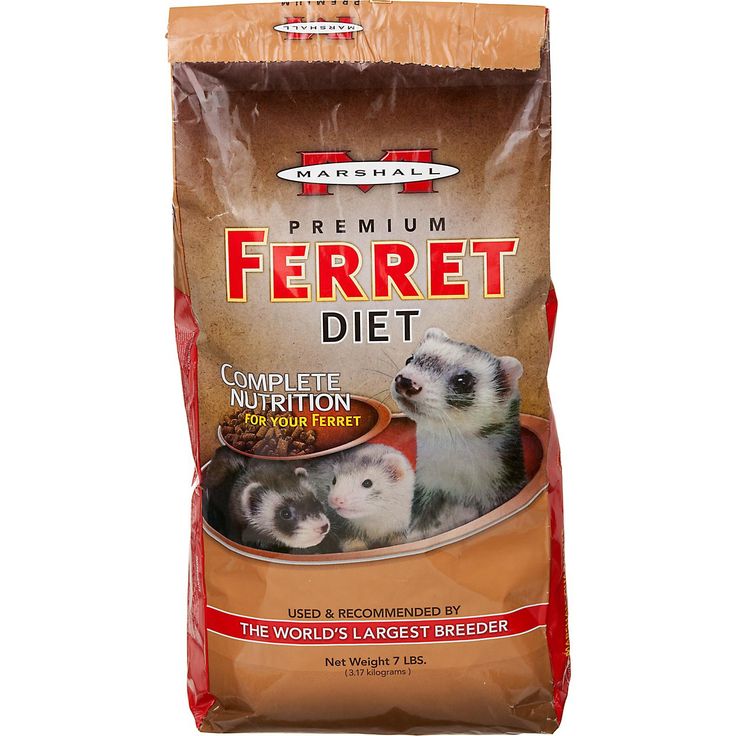What to do with expired baby food
What an Expiration Date Means for Baby’s Food
It’s probably safe to say most of us discerning shoppers go to the supermarket and automatically scan the expiration date on any packaged food before deciding whether it goes into the shopping cart. That’s likely doubly true when buying food for your baby or toddler. It’s important to keep an eye on these sell by dates and best by dates, at least to some degree—but experts say you typically have some leeway with the dates once the food comes home and finds a place in your pantry or fridge. Plus, there are different types of expiration dates, and they don’t all mean the same thing. Here’s the real deal on food expiration dates, so nothing has to go to waste before its time.
How to Read Expiration Dates
With all the different types of food expiration dates, it’s understandable if you’re a bit fuzzy on what each means. While each has something to do with food quality, things get a little nuanced beyond that. But across the board, food sold in the US isn’t required to display any kind of expiration date (with the exception of baby formula)—instead, the best by or use by dates are completely up to the food company. “Manufacturers provide dating to help consumers and retailers decide when food is of best quality,” the US Department of Agriculture (USDA) states. “Except for infant formula, dates are not an indicator of the product’s safety.”
• Best by dates are probably the most common, and they usually mean it’s a good idea to buy and use the product by the date on the label in order to enjoy the food at its highest quality. It doesn’t necessarily mean that past that date, the food is unsafe to consume. “In general, ‘best by’ means you want to use it by that date or soon after, because its quality is going to go down after that,” says Michael Doyle, PhD, a professor of food microbiology at the Center for Food Safety at the University of Georgia.
• Sell by date is a label that’s generally put in place to let retailers know that food is less likely to spoil if it’s sold before a set time, says Benjamin Chapman, PhD, an associate professor and food safety extension specialist at North Carolina State University. If a product isn’t sold by its sell by date, retailers should, in theory, pull it from shelves.
If a product isn’t sold by its sell by date, retailers should, in theory, pull it from shelves.
• Use by date is just what it sounds like—you should use a product before you hit this date, which is the last day the food will be at its peak quality. While you may see this date stamp on other foods, the FDA only requires it to be on infant formula.
Food Expiration Dates: What You Can Eat When
Stocking up on food for your kids only to have it sit in the fridge for several days is an all-too-familiar scenario for many of us—but before you toss it, know this: It’s generally safe to feed your child most foods that are a few days beyond their expiration dates and, in some cases, even longer, Chapman says. “If the date passes during home storage, a product should still be safe and wholesome … until spoilage is evident,” according to the USDA. That said, specifics help. Here’s which common baby and toddler foods are and aren’t safe to eat past their expiration date:
• Expired baby formula.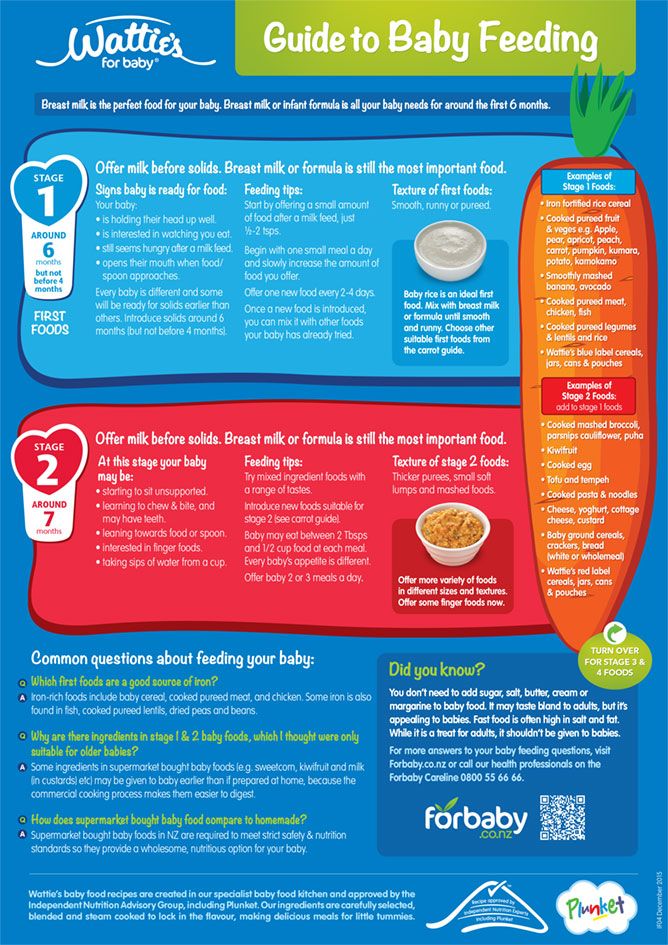 Unopened cans of formula generally last a year—and this is the one food you don’t want to serve past its use by date. It has nothing to do with food safety, but beyond that use by date, the nutrients in the formula will start to degrade, Chapman says. “Since it’s the only source of nutrition for infants, it’s very important the nutrients are precise,” he says.
Unopened cans of formula generally last a year—and this is the one food you don’t want to serve past its use by date. It has nothing to do with food safety, but beyond that use by date, the nutrients in the formula will start to degrade, Chapman says. “Since it’s the only source of nutrition for infants, it’s very important the nutrients are precise,” he says.
• Jars or pouches of baby food past their sell by date. After your child eats from a jar or pouch of baby food, any leftovers should be thrown out, especially if you fed baby right from the container (since the saliva can contaminate the food). But if the packages are still sealed, Chapman says you’re fine to use them a few days past the expiration date. The quality of the products past their sell by date will vary, he says, but jars should keep food fresh longer than pouches.
• Cereal and puffs past their best by date. You definitely have some leeway here, especially if the box is unopened.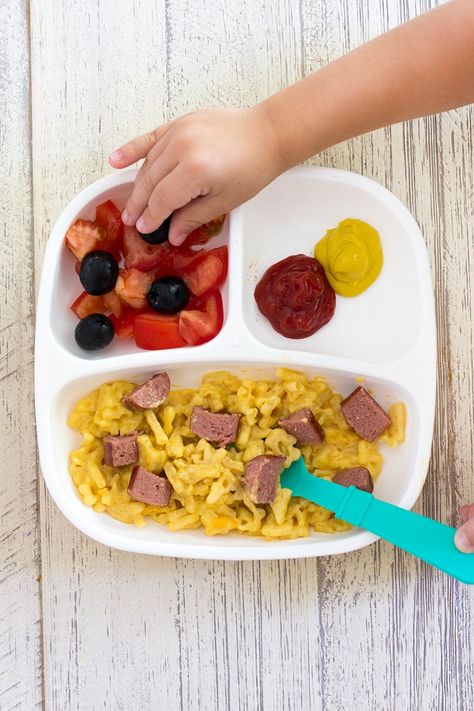 “Cereal can be used much longer than just a few weeks past the expiration date,” Doyle says. The biggest potential issue is that fat in the cereal will oxidize, causing the taste to be a little off. But it’s more likely to go stale than anything else, Chapman says.
“Cereal can be used much longer than just a few weeks past the expiration date,” Doyle says. The biggest potential issue is that fat in the cereal will oxidize, causing the taste to be a little off. But it’s more likely to go stale than anything else, Chapman says.
• Eggs past their expiration date. Eggs are usually good for three to five weeks in the fridge. Salmonella is a potential issue, Doyle says, which is why he doesn’t recommend using them more than a week past their date stamp.
• Milk past its sell by date. How long milk can sit in your fridge depends on how much it’s been pasteurized (ultra-pasteurized milk can last for months, for example), so it’s best to get a general idea by the date stamp, Chapman says. “In pasteurized milk, we don’t often look at it as a source of pathogens, but it goes sour,” he says. If it’s in your fridge and you’re a day or two past the sell by date, you’re probably fine to give it to your kids (provided it tastes okay). “I would have no qualms feeding my grandchildren milk that’s a week past the expiration date,” Doyle says.
“I would have no qualms feeding my grandchildren milk that’s a week past the expiration date,” Doyle says.
• Yogurt past its best by date. You’re perfectly fine to eat yogurt past its expiration date—and usually for quite a while afterward. “Yogurt is made from pasteurized milk, so the harmful microbes should [already] be killed,” Doyle says. The biggest concern is that the yogurt might taste tangier the longer you get past the best by date, since acid builds up in it over time. But “a month past is no less safe than if you had eaten it within that best before date,” Chapman says.
• Juice past its sell by date. From a food safety standpoint, it’s never a good idea to drink unpasteurized juice, due to the risk of harmful bacteria—and that’s especially true for children. If you were planning to give baby unpasteurized juice, don’t. But if you have a pasteurized apple juice box or orange juice container that’s a few days past the sell by date, you should be fine to give it to your child as long as it’s unopened, Chapman says.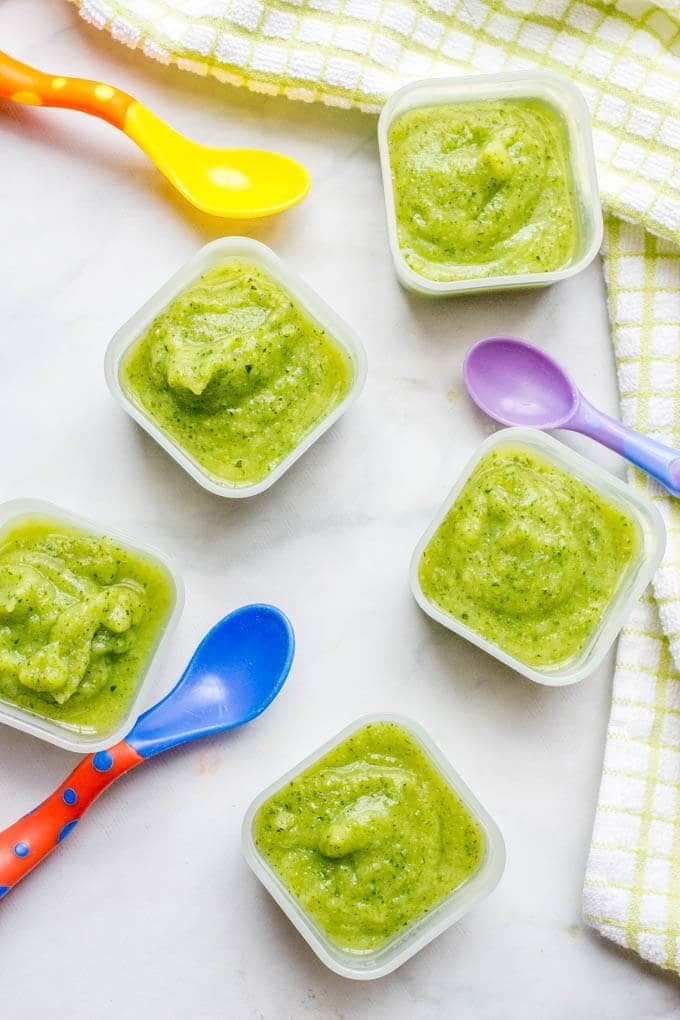 And, he points out, “if the juices need refrigeration, they have to stay refrigerated.“
And, he points out, “if the juices need refrigeration, they have to stay refrigerated.“
These are general rules for a few of the big foods that babies and toddlers eat. But if you’re not sure if the food you’d usually serve to your child is okay, it’s best to take a pass. “When in doubt, throw it out,” Doyle says. “That’s generally the rule for food safety.”
Published September 2017
Please note: The Bump and the materials and information it contains are not intended to, and do not constitute, medical or other health advice or diagnosis and should not be used as such. You should always consult with a qualified physician or health professional about your specific circumstances.
2 Best Uses + 6 Usage Tips
Everything has an expiration date and infant formula is no different, but once it does expire, the real question becomes: What to do with expired baby formula?
The best solution for what to do with expired baby formula, is to either put it in the trash, use it for gardening projects, or donate it to an animal shelter.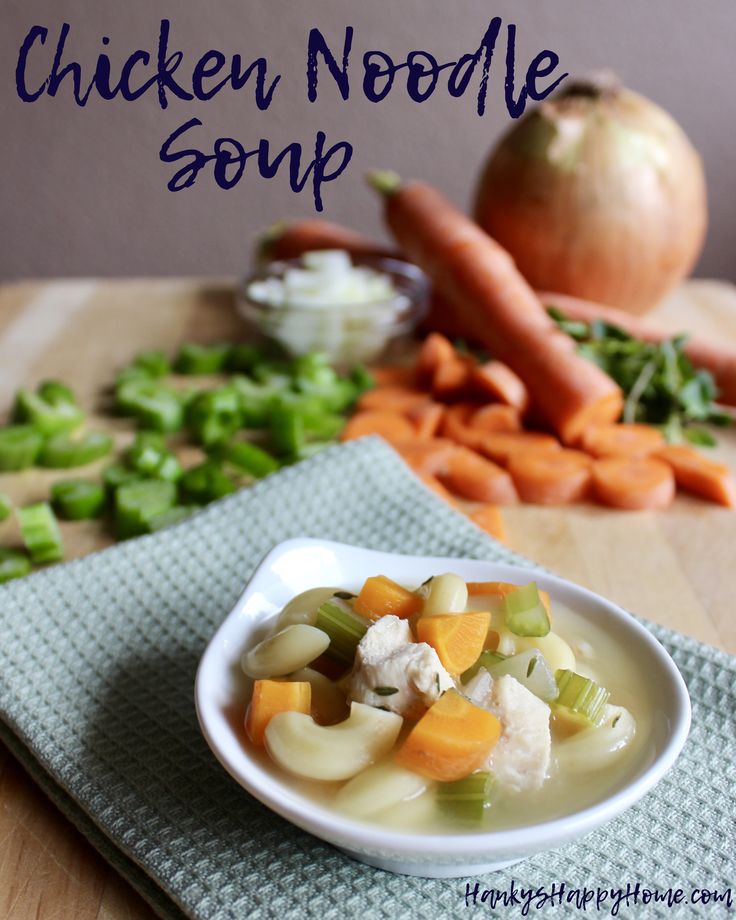
So why is an expired product bad? We know that some can still be usable even after the expiration date printed on them has passed, but when it comes to baby food it’s a bit different.
Depending on how the formula came, it can be something as simple as the baby food losing its nutrients, which means it no longer has the amount necessary to satisfy a baby’s nutritional requirements.
Expired baby food can develop mold in some severe cases, so you should always be vigilant and check the packaging for its expiry date to make sure it’s fit for consumption.
Even if the packaging is safe, always inspect the contents before prepping a new batch of formula to see if anything might seem off, and maintain optimal food safety measures.
Giving your little one expired formula isn’t only risky because of the lack of nutrients, but because it’s very likely to give them an infection or make them sick in general.
If you start noticing your child is feeling a bit nauseous, crying more often, or suffering symptoms like a fever, bouts of diarrhea, vomiting, or similar, your baby food might be the cause.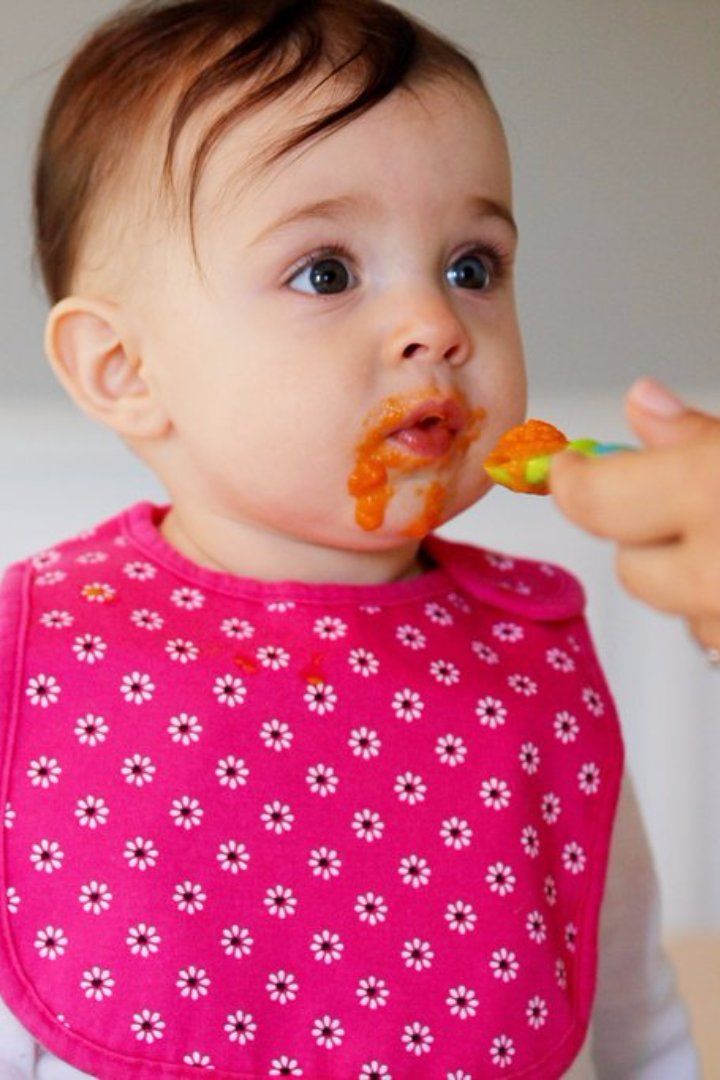
It’s a real waste to throw something away once you’ve bought it though, isn’t it? That’s why I’m going to show you a couple of ways you can utilize expired baby food, as well as a few tips to prevent it happening the next time.
What To Do With Expired Baby Formula1. Donating it to an animal shelterIf the formula isn’t too far past its shelf life, and the spoilage isn’t too bad, the best option is to gather it up and donate it to an animal shelter.
It may not exactly be brand name dog or cat food, but the puppies and kittens are children too and they can benefit from these nutrients just as much as your own child.
Plus, it will feel great to help those precious little scamps in need, as well as help support your local animal shelter.
Who knows, you may have helped save the lives of some animals that could end up being your future pets, and they’ll remember the kind thing you did for them.
Be sure to check what you give them though, as even animals will have trouble eating anything that’s contaminated and the shelter itself will refuse to accept it.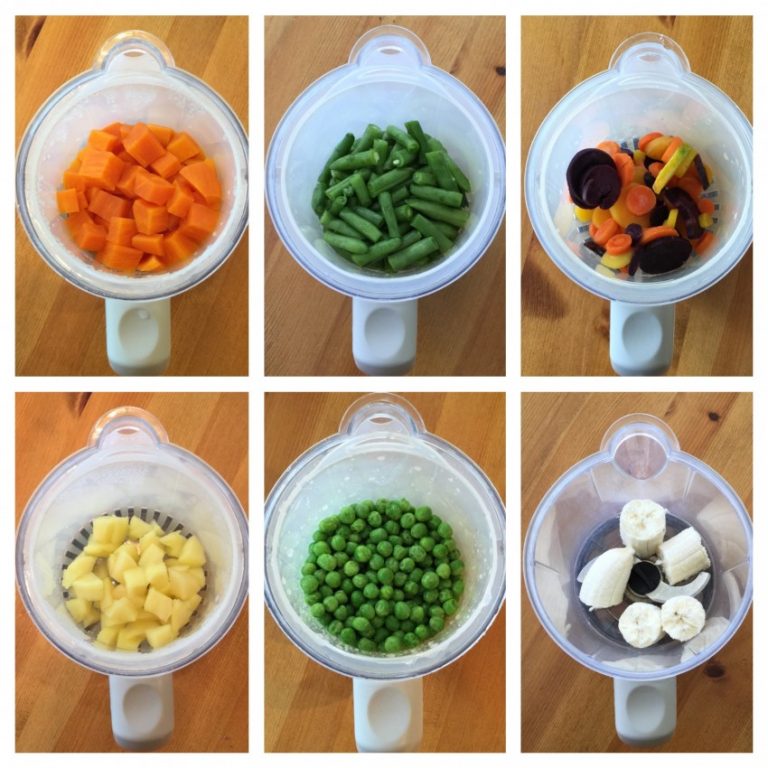
The other surprising option for what to do with expired baby formula, is to use it in gardening. It even works for food that’s contaminated and is too far gone past its best before date.
The nutrients inside baby food can serve as compost to help your garden flourish, and is considered a sort of pseudo-fertilizer that’s organic, depending on the formula you buy.
How Long Does Formula Stay Fresh?Depending on the type of formula you are using, the expiration date may vary.
In the case of powdered baby formula, it’s good for about a year when unopened, but that estimated time can go down fast if you leave it out in the open air for too long. Make sure to follow all storage instructions to the letter.
RELATED: How Long Does A Can Of Formula Last? (+ Formula Storage Tips)
That said, this isn’t usually an issue as your baby is likely to go through the entire thing quite quickly, just don’t buy too much at once and you should be good to go.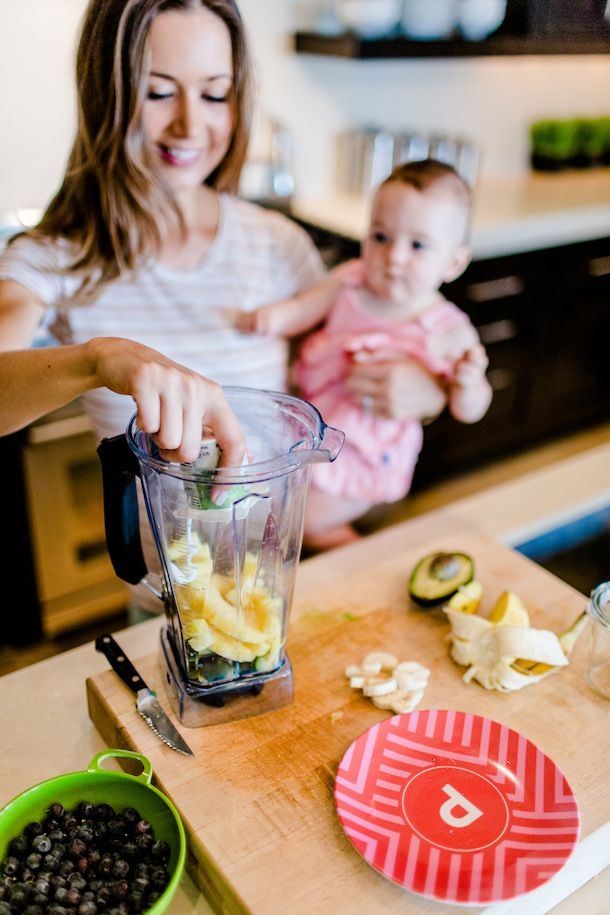
If you buy ready to feed infant formula, or make batches of prepared formula in advance, you should be aware they are very likely to go bad within 24 hours, even in prime storage conditions like a fridge or freezer.
If you leave it out at room temperature, or worse, in high humidity and high temperatures like the hotter months, the formula mix will spoil even faster.
Let’s be honest, nobody wants to drink milk that’s been sitting out in the open for a few hours either, because it will likely have spoiled even if the formula brand is of the highest quality you can find in stores or on Amazon, like Enfamil or Similac.
Remember, unlike with powder formula, any you have prepared isn’t usable for donations to animal shelters or similar, so don’t be afraid to toss it out if it has developed a funky odor.
Always be sure to wash the baby bottle immediately after use, because you don’t want any of it to linger and contaminate future batches.
What To Do To Prevent Baby Formula From ExpiringTo avoid having to wonder what to do with expired baby formula in the first place, you should take some preventative measures so you don’t lose money for no reason.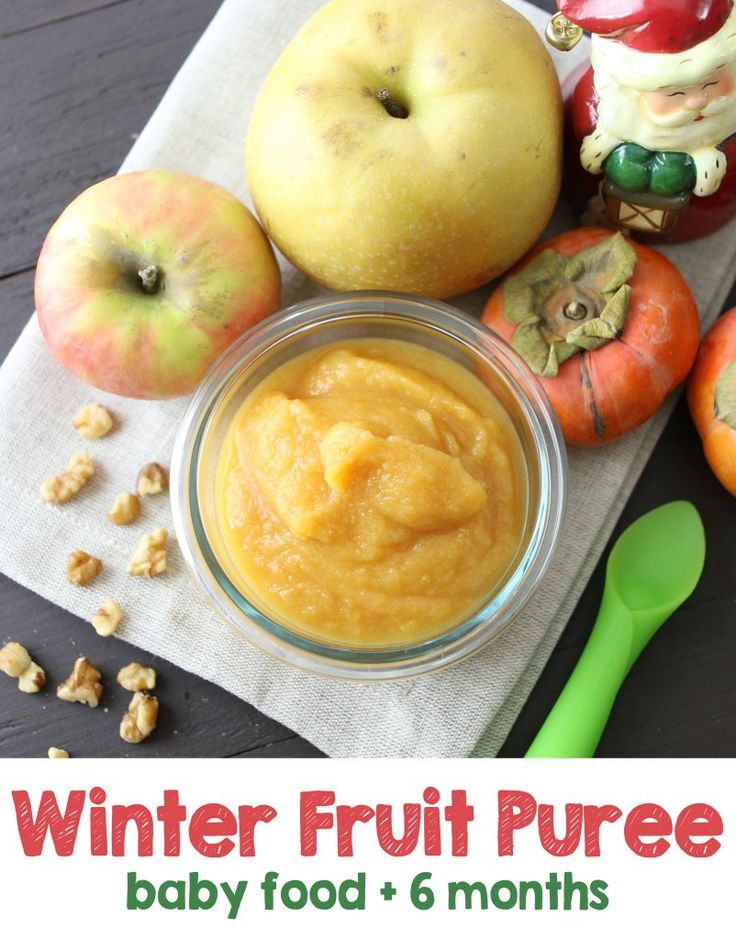
The methods mentioned above all work, but chances are that you don’t have a garden in which to use the expired infant formula or a nearby animal shelter.
1. Make sure to look at the expiration date before buyingSimilarly to other food products, if you go to a retailer to buy your food, always make sure to check the packaging for the expiration date before buying formula.
It’s the best way to avoid accidentally getting formula that’s close to going past its shelf life.
This might be a bit harder if you’re buying from online retailers like Amazon or Ebay, in which case you should make sure the formula brand in question offers returns/refunds if there’s faulty packaging, contamination, or an expired product.
2. Store the formula properlyOnce you have your formula, the next step is to make sure it’s properly stored.
The best thing to do is follow the standard storage procedure of keeping it somewhere indoors in a dry, cool place.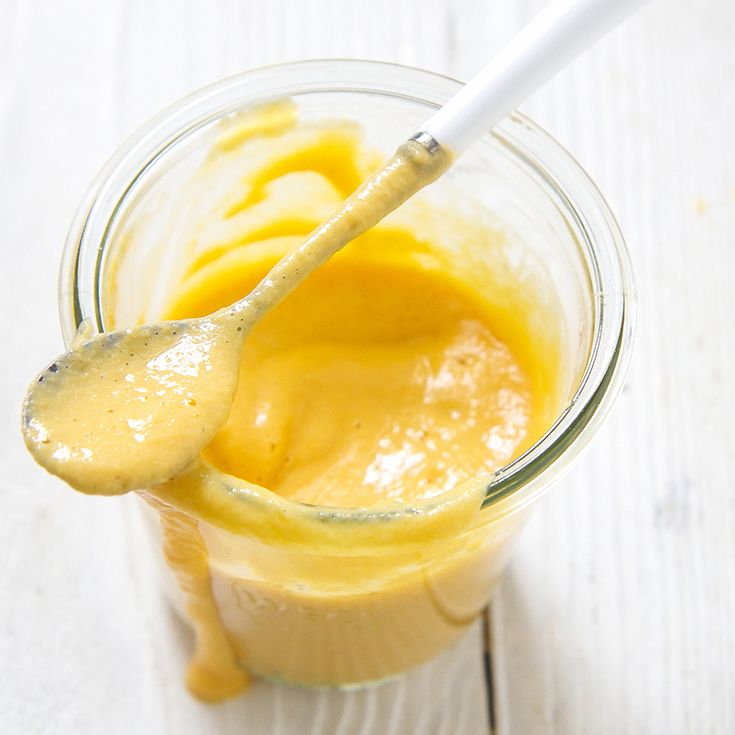 A pantry is usually the best choice.
A pantry is usually the best choice.
It’s important to note that the fridge isn’t a dry place, so avoid storing it there, especially as the formula is likely to get mixed in with the rest of the produce in the fridge, and this will ruin the baby formula.
Once you open it, ensure the lid is kept tightly closed before being stored away to prevent any aerial contamination.
If your formula came in a bag, I suggest getting a clothespin or something similar made especially for storing food products to seal the hole and keep the product as fresh as possible.
3. Once opened, use the formula up quicklyDon’t open multiple packs of formula at once. Use each one up before opening another. This way you’ll minimize the chances of spoilage.
While they’ll stay fresh for a while after being opened and stored properly, even some of the highest quality formulas will only last, at maximum, the duration of the month of opening the package.
Even so, try not to wait until the very last day of the month to use the formula up, because you never know what might happen to it even if you take all the precautionary measures.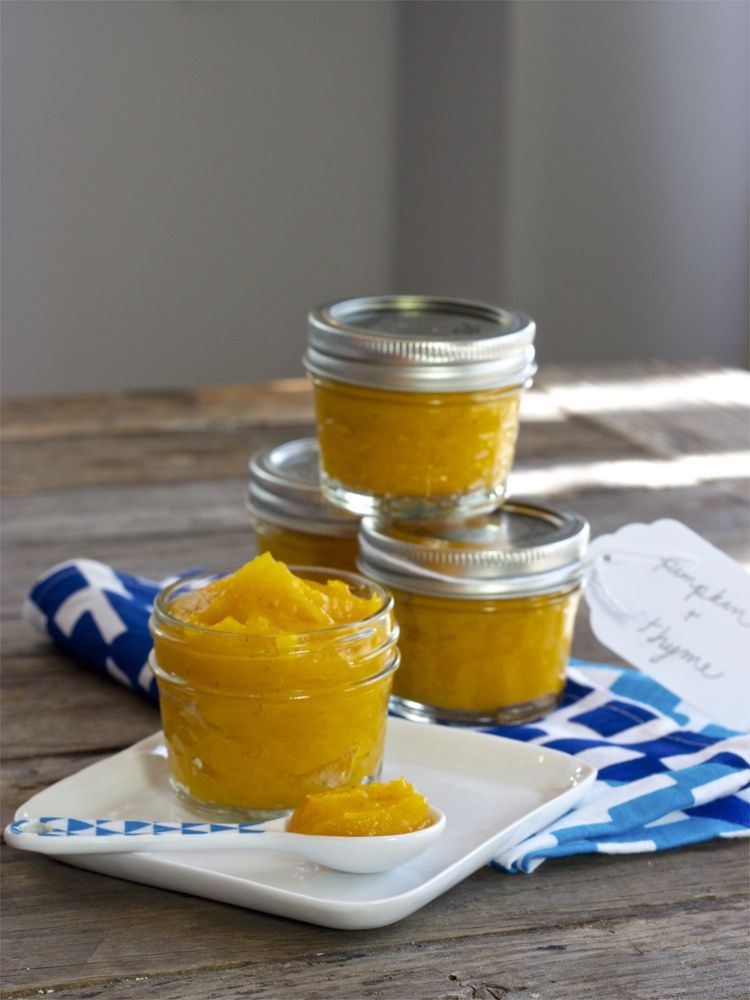
While it might seem cheaper in the long run, doing this makes it very likely that you end up reaching the expiration date printed on the cans, which increases the chances of one of them ending up contaminated or going bad.
Stick to buying smaller quantities, which you know your child will be able to get through over the course of a week or two, and resupply when necessary.
5. Don’t leave prepared formula out in the openMuch like #3, once you’ve prepared the formula, give it to your baby the moment it’s ready.
Don’t let it linger out in the open because you might forget about it, which will just end up spoiling or contaminating it. This might even ruin the baby bottle itself.
6. Consult with your pediatricianFor professional and personalized advice, I suggest getting in contact with your pediatrician, family doctor, or any other qualified healthcare professional to set up an appointment and talk to them about other methods of preventing baby formula from expiring.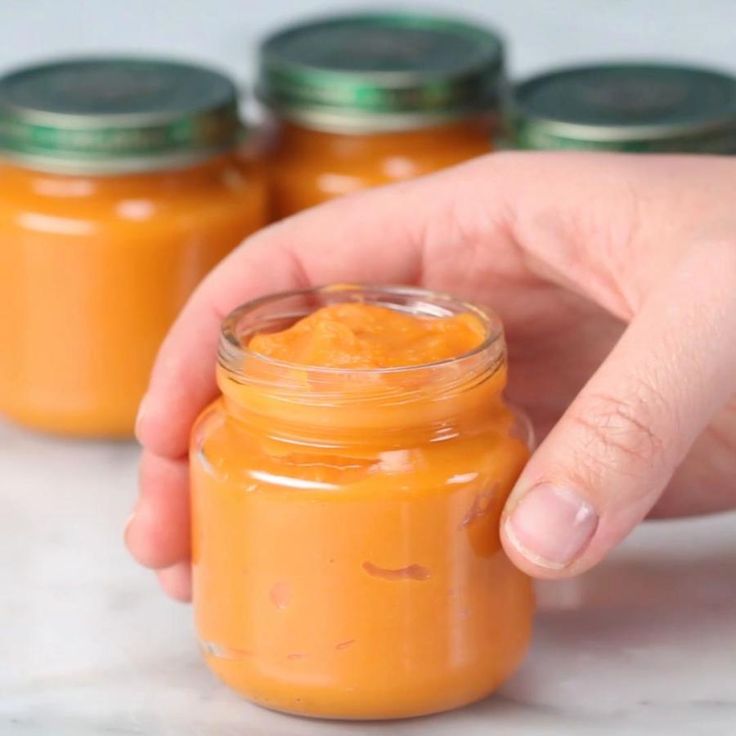
They’ll be able to offer you solid advice on the matter and you should heed their words.
I know it might be hard to throw away a whole package of formula if you spot a little mold in it, but it’s safer for your baby in the long run and not worth risking his life for the sake of a few bucks.
What Does Expired Baby Formula Look Like?Before worrying yourself about what to do with expired baby formula, you need to know how to spot it.
The most common thing is mold growing in the expired powder formula, or the powder itself looking frosted up. These are the telltale signs of contamination, and the package in question should be disposed of entirely.
When it comes to ready-made ones, the clearest sign is a nasty smell. Should that be the case, throw it away immediately and wash the container thoroughly afterwards.
In ConclusionMany people wonder what to do with expired baby formula, and don’t realize that it still has uses despite having run past its best before date.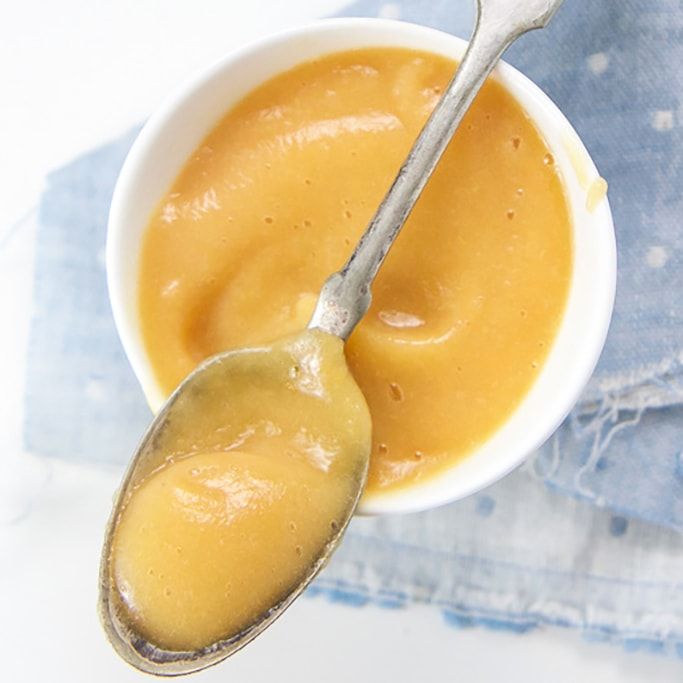
While it might not be good for feeding to your kids anymore, you can still donate the package to your local animal shelter to help feed all the hungry kittens, puppies, and other baby animals if the formula in question isn’t too far gone.
They’ll be really thankful for it!
There’s also the great, albeit unproven, option of using it as fertilizer for your plants, as infant formula contains many of the same minerals and nutrients that plants feed off of to grow tall and healthy.
Whatever the case may be, make sure to always keep an eye out for any signs of anything off in the formula, and be sure to store it properly to avoid a stomach infection or worse.
Finally, if you do notice that something seems off with your child, the likely cause could be the formula in question, so don’t hesitate to call upon your friendly pediatrician or any other healthcare worker to help diagnose your child and find the root cause of the problem.
It’s not something too hard to manage, and it’ll become second nature soon enough, but don’t beat yourself up if something slips past the radar because nobody is perfect.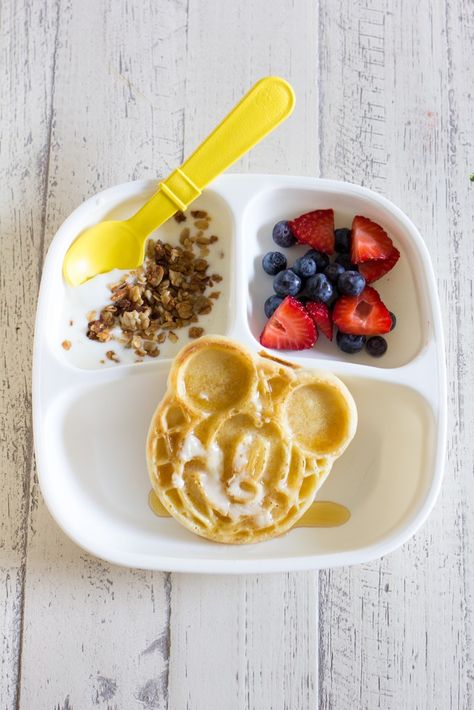
Like this post? Please share or pin it for later. You can also stay in the loop and follow us on Facebook, Instagram or Pinterest.
We love honesty! Find Your Mom Tribe is an Amazon Associate and we earn from qualifying purchases through affiliate links at no extra cost to you. Please see our full Amazon Affiliate disclosure for more information.
Sharing is caring!
15 shares
- Share
- Tweet
Expired products, can they be eaten? Roskachestvo experts tell
Environmental activists urge not to throw away products, the expiration date of which is coming to an end, but to give them to the poor. Freegans go even further: in their opinion, you can eat expired and even rotten food, just cut off the areas with rot or mold. We decided to find out from experts whether such recommendations are safe.
- It is not safe to eat food that has reached the end of its expiration date. – comments Nadezhda Korolkova, gastroenterologist-immunologist. - By the designated time, microorganisms multiply in them, among which there may be pathogenic and causing food poisoning.
– comments Nadezhda Korolkova, gastroenterologist-immunologist. - By the designated time, microorganisms multiply in them, among which there may be pathogenic and causing food poisoning.
That is why I recommend not only not to eat products that are about to expire, but also not to buy groceries on a promotion, the prices of which are reduced for the same reason. You should also be wary of packages with re-glued, poorly readable or smeared expiration dates. Such marking, as a rule, gives out an unscrupulous seller, and the product itself may be of dubious quality and unsafe.
Regarding rotten products. The best solution is to leave them. The fact is that even if you cut off the mold, for example, from bread or cheese, this will not make the product safe. Mold on bread is caused by various types of fungi. Mold spreads not only on the surface of the product. Her hyphae (mycelium legs) penetrate deep. Therefore, cutting off the moldy area is not enough. Remember the rule: mold has appeared, even a small speck - the product is unsuitable for food.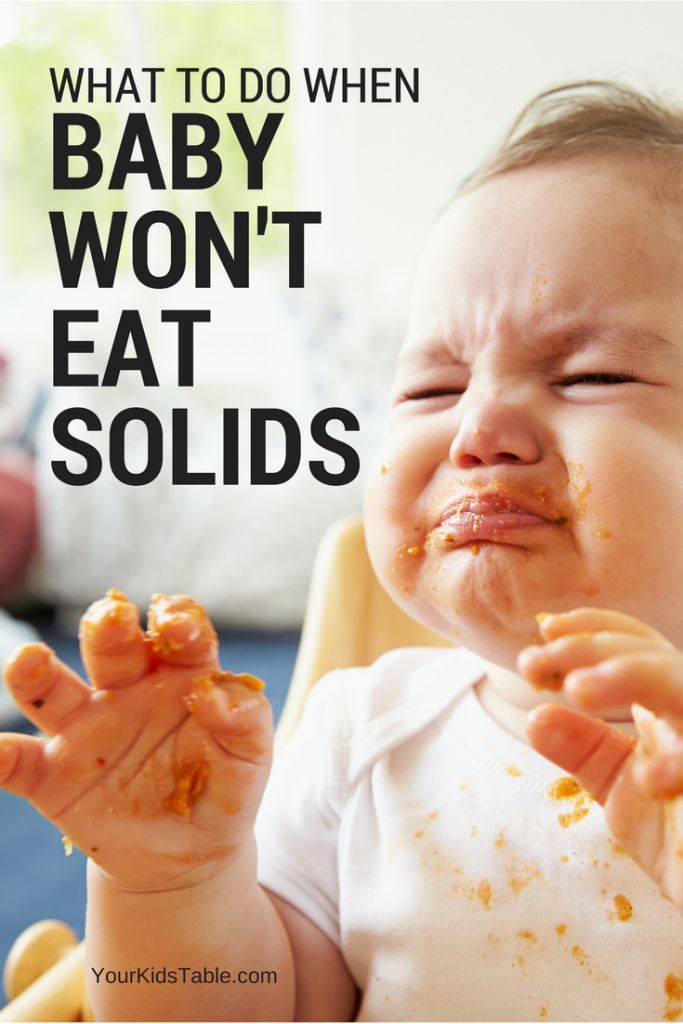 This also applies to mold on cheese.
This also applies to mold on cheese.
Is expiration date and shelf life the same thing?
When choosing products in the store, most of us pay attention to the expiration date, especially when it comes to perishable goods - milk and dairy products, chilled fish, meat, prepared fresh meat products, ready-made salads, etc. But there is also such a thing as as the shelf life. What is the difference?
Anastasia Semenova
Doctor of Technical Sciences, Professor, Academician of the Moscow Academy of Arts, Expert of the Russian Academy of Sciences, Deputy Director for Research, VNIIMP named after V.I. V. M. Gorbatova
- For food products, there is the concept of "shelf life", which manufacturers must always indicate. But there is also such a thing as "shelf life". The shelf life is understood as the period from the moment of manufacture of the product until the moment of consumption or use. For example, the expiration date, that is, the period during which the product can be used, is 2 months. You buy a product in a store and see that it was produced 2 weeks ago, which means that the shelf life is 2 weeks, and there are 1.5 months left before the expiration date. It is important to understand that the shelf life should not exceed the expiration date.
You buy a product in a store and see that it was produced 2 weeks ago, which means that the shelf life is 2 weeks, and there are 1.5 months left before the expiration date. It is important to understand that the shelf life should not exceed the expiration date.
By designating the expiration date, the manufacturer thereby guarantees the quality of the product and is responsible for its safety during the expiration date specified by him. If you decide to eat an expired product, it is your decision and you alone are responsible for the consequences for your health.
“In my opinion, one of the problems why food ends up in the bin is irrational purchases,” Anastasia Semenova clarifies. - Today, the necessary products can be bought at any time of the day or night. Nevertheless, Russians make purchases for the future, and then get rid of expired and spoiled stocks.
Ludmila Buslaeva
director of research department of Roskachestvo
- Expiry date - the time period during which the product is suitable for its intended use.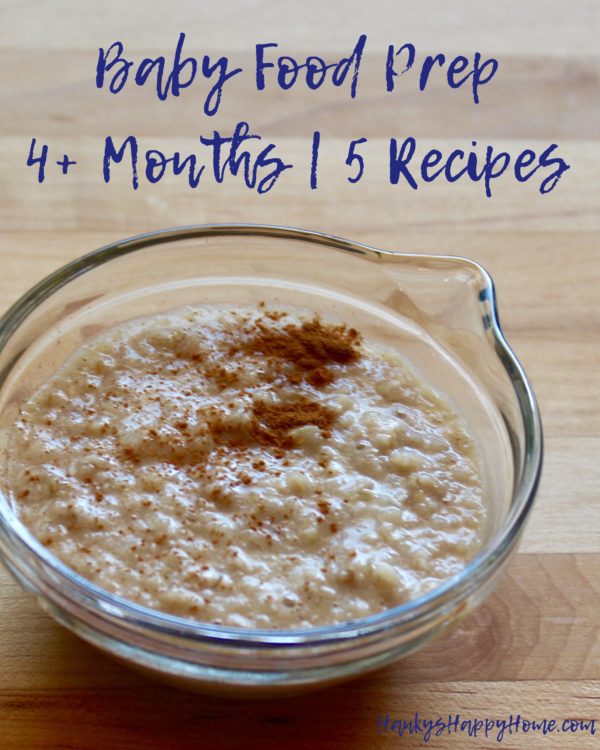 After this period, the product should not be consumed. Expiration dates are specified in state standards for each subgroup of products. At the same time, the expiration dates and storage conditions of a particular product are set by the manufacturer.
After this period, the product should not be consumed. Expiration dates are specified in state standards for each subgroup of products. At the same time, the expiration dates and storage conditions of a particular product are set by the manufacturer.
If the composition contains several components, the expiration date of such a product is determined by the ingredient with the shortest expiration date. If the goods are sold by weight, then the period is calculated not from the date of packaging, but from the date of manufacture. The most capricious are ultra-perishable products (cream cakes, ready-made salads, fresh fish, semi-finished products from chilled meat). They retain consumer properties only from 12 hours to 3 days, and only when refrigerated. Therefore, the manufacturer is obliged to indicate the exact date of production on the packaging (not only the year and month, but the day and hour).
Perishable products are those that can be stored in the refrigerator from 3 to 30 days.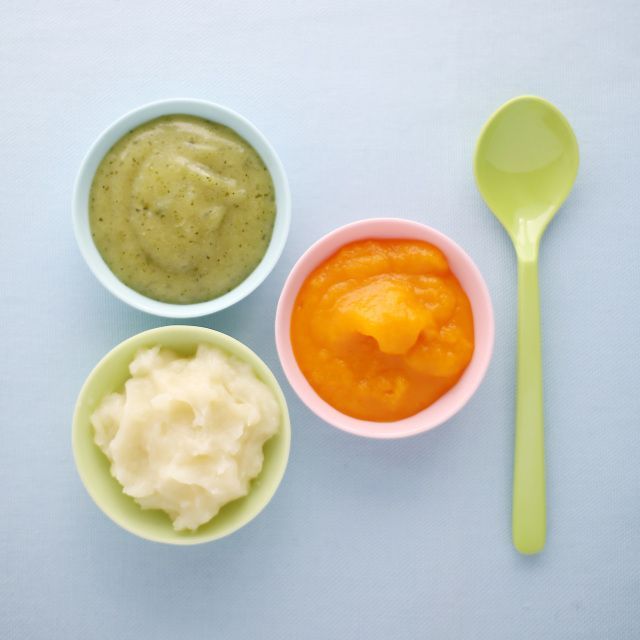 For example, pasteurized milk in soft packaging will not turn sour for 5 days, and yogurt will last 14 days.
For example, pasteurized milk in soft packaging will not turn sour for 5 days, and yogurt will last 14 days.
Anything that can be stored for more than a month is classified as a long-term storage product. Deadlines may vary. For example, dried fruits in a dark, dry and ventilated place will lie for up to a year; flour, salt, tea, sugar and some types of canned food will last up to five years. But all this is true until the product is opened. And, of course, until the moment of opening, it must be stored in accordance with the requirements, - clarifies Ludmila Buslaeva .
FOR REFERENCE
There are many examples when canned food was found in the Arctic that had lain in permafrost for 74, 87 and even 114 years! Moreover, after conducting complex microbiological and physico-chemical studies, their safety was confirmed. Read more about these and other facts of ultra-long food storage in the book "Permafrost Guards the Quality of Foods", which is being prepared for the second edition by the Federal Reserve Agency, Dmitry Shparo's "Adventure" club and the Federal Scientific Center for Food Systems. V. M. Gorbatov.
V. M. Gorbatov.
Reserve ratio: how much stock do products have after expiration date?
Any product has a so-called reserve ratio. There will be no such thing that rice can still be cooked today, and tomorrow, after the expiration date, it will already turn into sawdust. Or today, canned fish is quite edible, and at midnight it suddenly turns into a poisonous mass. Of course, there is a certain time margin, which is set by the manufacturer in the regulatory and technical documentation (usually for products not manufactured in accordance with GOST).
1. For perishable products:
- with a shelf life of up to 7 days - 1.5;
- with a shelf life of up to 30 days - 1.3;
- with expiration dates over 30 days - 1.2.
- for baby food (up to 3 years) - 2.
2. For non-perishable products:
- food - 1.15;
- for baby food (up to 3 years old) - 1.5.
The nine products with the longest shelf life HERE
And if you recycle?
Many housewives believe that if you make casseroles, cheesecakes, fondue, etc. from a slightly spoiled product, then it will become safe.
from a slightly spoiled product, then it will become safe.
“Indeed, at a temperature of 100–130 °C, almost all fungi die, except for the spores of some varieties of thermophilic baker’s yeast,” explains Nadezhda Korolkova . – However, it is important to know that heat treatment almost does not destroy mycotoxins, that is, the waste products of fungi that are toxins for humans. You should not, for example, use half-spoiled berries and fruits for making jam, compotes, and baking fillings. A healthy-looking part of a spoiled apple, for example, may be contaminated with a mycotoxin. So don't risk your health.
The most common moldy disease of cereal grain is Fusarium. It infects up to 25% of the grain harvest every year. But the most common mold is Aspergillus. It can grow as a white-yellow-green fluffy coating on wheat, rye, rice, jams, dried fish, peanuts, legumes, fruits and vegetables. Therefore, you should not risk your health for the sake of a preserved piece of rotten product.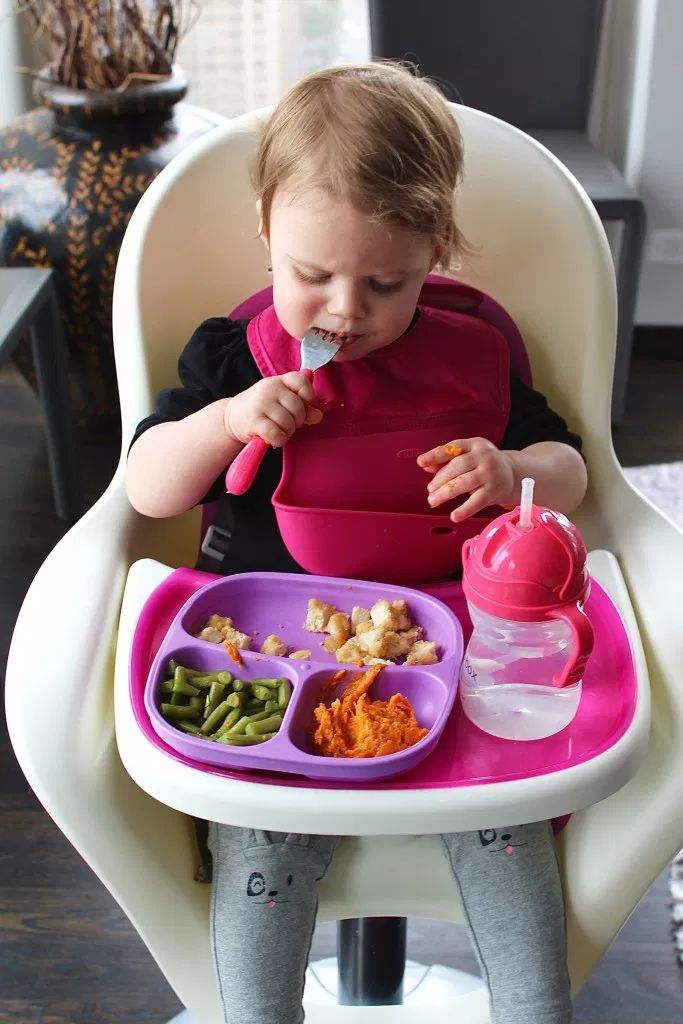 It is necessary not to cut off the mold, but to throw away such products, says Nadezhda Korolkova .
It is necessary not to cut off the mold, but to throw away such products, says Nadezhda Korolkova .
Do not transfer!
In Europe and the US, there is a practice of donating expired products to charity. We contacted the Association of Retail Companies (AKORT) with a request to tell us what our retailers do with such products.
Ilya Vlasenko
director of external relations AKORT
- In Russian legislation, the procedure for the gratuitous transfer of any goods is absent. Any transfer is considered a sale, and the seller automatically must pay all taxes and mandatory payments from such a transaction.
In addition, there are strict regulations governing the circulation of expired products (traffic is prohibited). If we donate products with an expiration date to for charity purposes, we, according to the current legislation, formally sell this product, and, accordingly, bear responsibility for this product.
If in the future the transferred products cause harm to health, the seller will incur serious punishment up to the closure of the trading enterprise. In addition, such a transfer (for charitable purposes) can also create additional difficulties, including the need to involve representatives of state regulatory authorities to record the transfer of products and the fact that they have not yet expired.
As a result, retailers:
-
They try to accurately predict demand and buy goods with a short or limited shelf life strictly in the quantity that will be sold.
-
For products that are expected to have reduced demand, promotions are carried out and prices are reduced.
-
If the expiration date for the product has expired, it is withdrawn from sale and disposed of. As a rule, they are transferred for recycling to specialized companies with which service agreements have been concluded.
Given the above, as well as the fears of experts that the rules of the cold chain during transportation are not always observed and the storage system does not meet the requirements in all outlets, today it is hardly possible to transfer food products free of charge. It turns out that the first steps to reduce food waste can be:
It turns out that the first steps to reduce food waste can be:
-
Compliance with the rules of the cold chain during transportation.
-
Rational approach of consumers to purchase products.
-
Increasing retailer focus on food storage system compliance.
How to get a refund for expired goods? The lawyer tells HERE.
Cooking hacks
Russians annually throw away about 17 million tons of food. This amount is enough to feed 30 million people for a year. Most often, vegetables, fruits, flour and dairy products end up in the trash (data from the Russian Association for Electronic Communications (RAEC) for 2019year).
Advice
Buy economically and store food properly so that you do not have to throw it away in the future.
Lara Katsova
brand chef
I'll start with a list of products. Compose it, focusing on the dish you want to cook.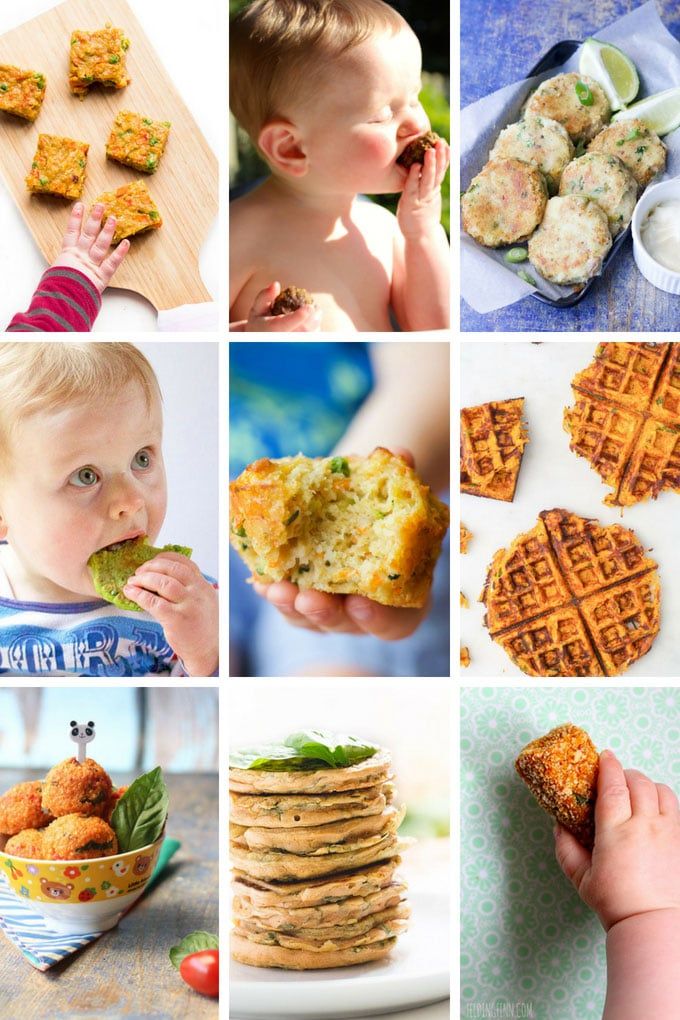 Look at what products are at home, and add the missing ones to the list. Plan a new trip to the store only after you use everything that you bought before.
Look at what products are at home, and add the missing ones to the list. Plan a new trip to the store only after you use everything that you bought before.
-
Properly distribute food in the refrigerator. Send poultry and meat to the lower shelves. Finished products and semi-finished products can be placed higher. The highest temperature in the refrigerator is on the door, so place ketchups or, for example, water here. But eggs and dairy products do not belong here.
-
Make more use of your freezer. For example, you were making pumpkin soup and half of the pumpkin was left. Do you know for sure that you will not be cooking in the near future? Cut the pumpkin into pieces, put it in a container and send it to the freezer.
-
Now they sell a variety of plastic disposable forms for freezing. In such a container, you can freeze fish fillets, then it will retain its shape and texture. It's better than freezing fish in a plastic bag.
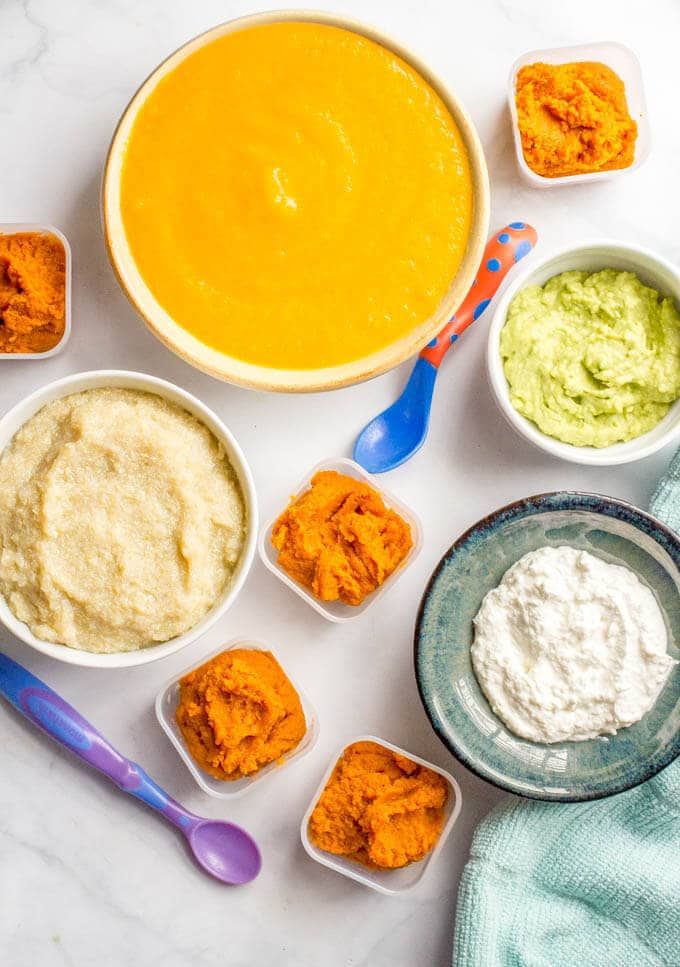
-
If you still have greens (dill, parsley, cilantro), chop it finely and dry. It will turn out a wonderful natural seasoning for soups and second courses. You can also add fresh chopped herbs to softened butter. Salt a little, mix well, roll the butter into a sausage using cling film and send the butter with herbs to the freezer. If desired, you can add to the oil and chopped garlic. This will make a fragrant herb butter that goes great with steaks, boiled potatoes, or you can simply spread it on fresh bread.
Follow the news, subscribe to the newsletter.
When citing this material , an active link to the source is required.
In Kamchatka, a mother of three children sold expired baby food | INCIDENTS
Estimated reading time: 1 minute
393
www.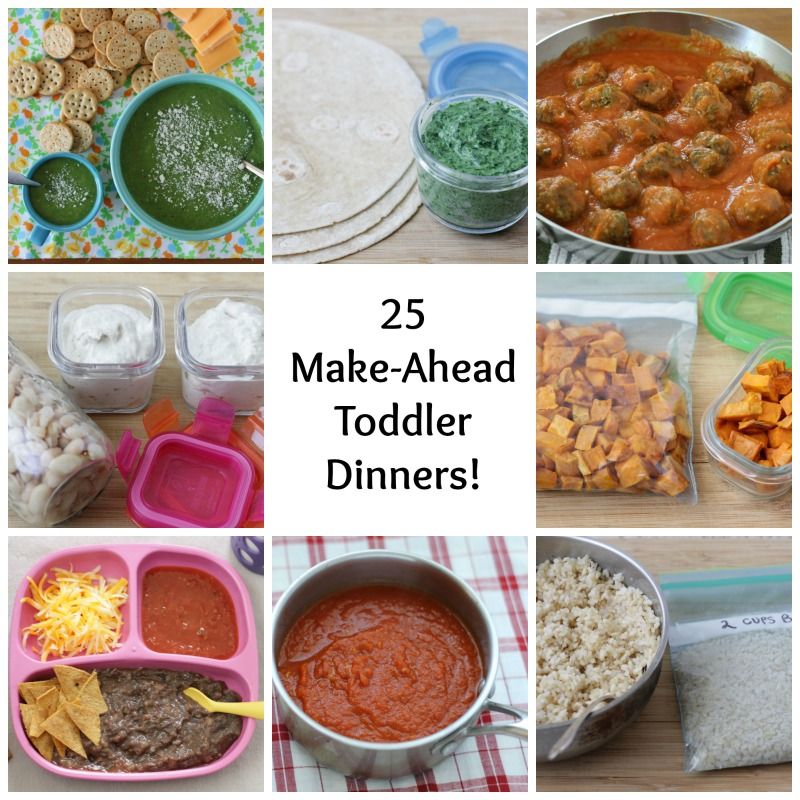 globallookpress.com
globallookpress.com
Petropavlovsk-Kamchatsky, June 1 - AiF-Kamchatka. In Petropavlovsk-Kamchatsky, a criminal case has been initiated against a 40-year-old businesswoman. The woman, herself a mother of three children, was selling expired baby food, the regional department of the Ministry of Internal Affairs reported.
As part of the operational-search activities, the criminal investigation officers found that the entrepreneur sells expired baby food in his store on Transportny Dead End Street. A product for children aged five months or older was overdue by almost a year.
Low-quality food, dangerous to the life and health of Kamchatka kids, was removed from sale by operatives. A criminal case was initiated against an unscrupulous businesswoman under Part 2 of Art. 238 of the Criminal Code of the Russian Federation (sale of products that do not meet safety requirements intended for children under the age of six). The sanction of the article provides for up to six years in prison.
- In Kamchatka, the director of the educational center deprived children of prize money →
- In Kamchatka, a teenager received a suspended sentence for drug possession →
- In Kamchatka, a family of villagers sold dangerous alcohol →
hazardous products
Next article
You may also be interested in
- In the Kamchatka cafe "At the Fountain" customers were fed with salads with mold
- In Kamchatka, a dairy plant producing low-quality cottage cheese was closed for a month
- In Kamchatka, in the "Old Yard" customers were fed dishes with E.
